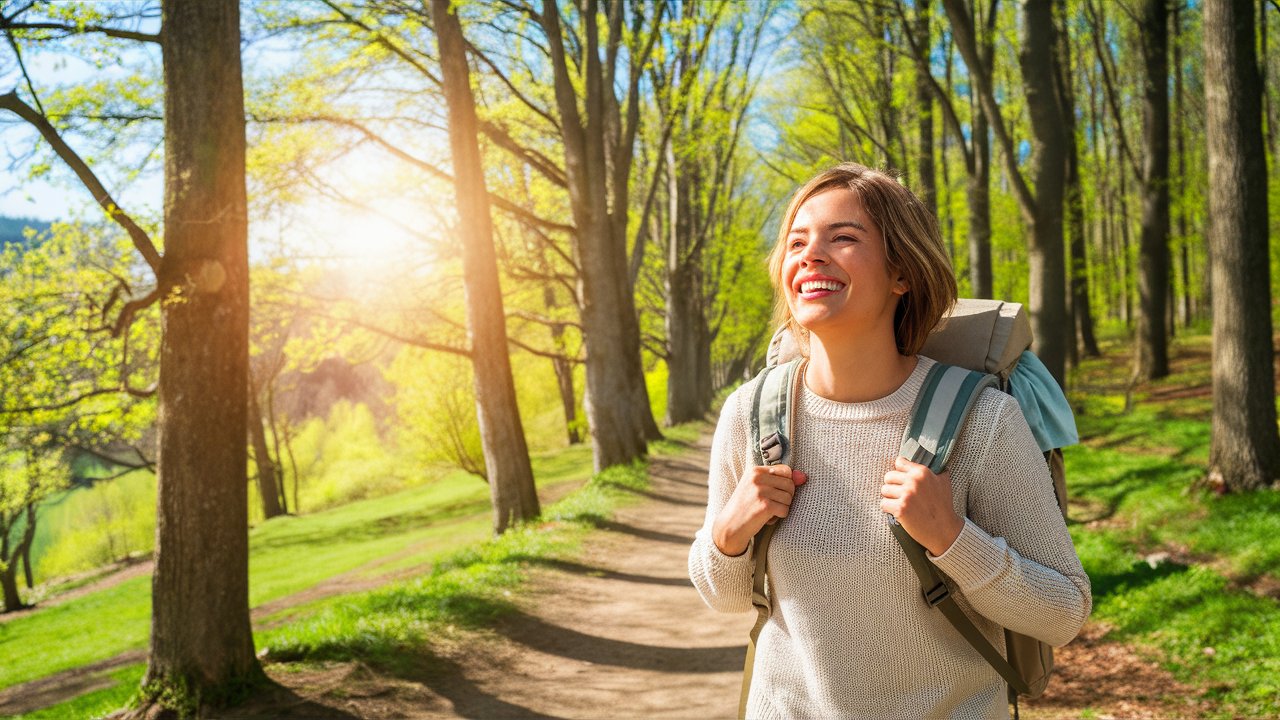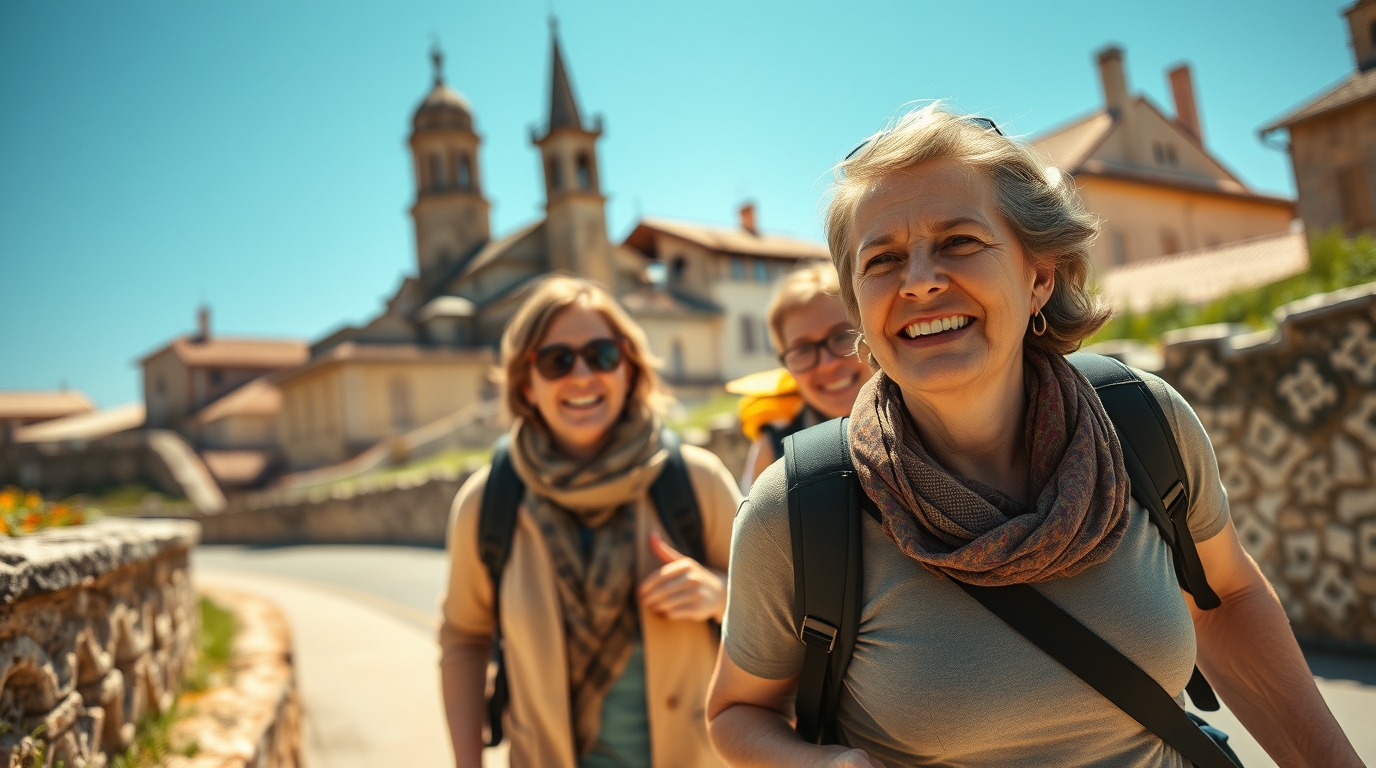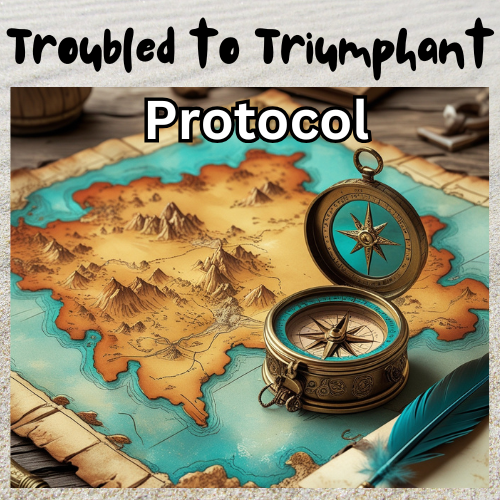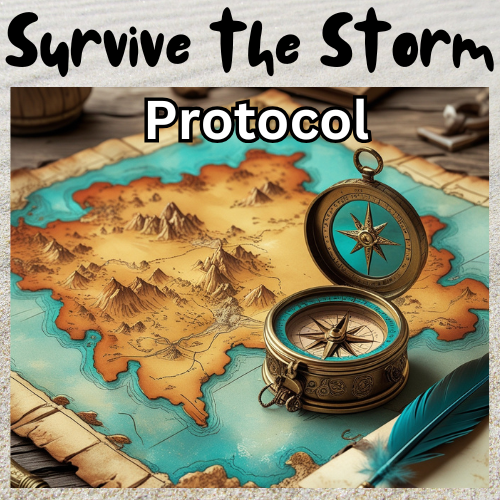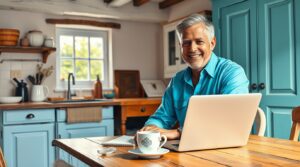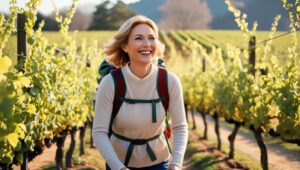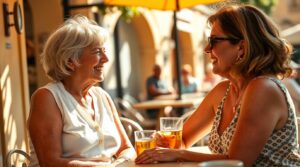10 Irreverent Ways to Rebuild When “Resilience” Feels Like a meaningless Buzzword
Anna: Rebellious, and relentlessly hopeful
Anna sat at her kitchen table, staring at her untouched cup of tea. The morning light filtered through the window, casting soft shadows over the chaos of half-read self-help books, scribbled notes, and empty tea cups.
Her dog, Max, snored softly under the table, blissfully unaware that his human was knee-deep in an existential crisis.
Six months ago, Anna’s life had imploded. A sudden divorce. A job that vanished overnight. Friends who promised, “I’m here for you!” and then mysteriously disappeared faster than cake at a birthday party.
She had tried everything. Therapy, journaling, breathwork, meditation, binge-watching motivational TED Talks, even an ill-advised attempt at goat yoga. (The goats had fun. She did not.)
But despite all the effort, she still felt stuck. Like she was treading water in the deep end of an existential swimming pool with no ladder in sight.
Then, one sleepless night, while doom-scrolling through yet another listicle on “10 Ways to Reinvent Yourself After Life Punches You in the Face”, an email popped up:
👉 “How to Rebuild Your Life After Everything Falls Apart.”
She almost deleted it.
Because, honestly? She was tired of empty promises.
But something about it felt… different.
The email wasn’t full of fluff about “bouncing back” or “embracing the journey” (ew). It was blunt, practical, and—dare she say—hopeful. It talked about real transformation, not just coping. About reinventing your life in a way that actually fits the person you’re in the process of becoming.
So, she clicked. Read the email and requested the Ready for a Radical Renaissance? quiz. And braced herself for disappointment.
Except… it wasn’t disappointing.
It didn’t reveal that she had to slap a gratitude sticker on her grief and manifest her way out of the mess. Instead, it introduced her to an actual roadmap for navigating the chaos of change. A medically-informed, science-backed, soul-strengthening approach to rebuilding identity, confidence, and clarity after a major life shake-up.
For the first time in months, something clicked.
She didn’t need to “bounce back.” She needed to move forward.
So, she did.
Six months later, Anna is no longer just surviving her LifeQuake. She’s designing a life that excites her. She’s found meaning in the mess, clarity in the uncertainty, and—most importantly—she’s drinking her tea before it goes cold.
And it all started with that one click.
If you’re in the middle of your own LifeQuake and you’re tired of the same old advice that doesn’t fit, I invite you to check out the LifeQuake Survival Protocol.
Because you’re not broken. You’re in the messy, magnificent process of becoming.
👉 Request the Ready for a Radical Renaissance? quiz now.
PS: You don’t have to do this alone. And you definitely don’t have to do goat yoga. (Unless you really want to.)
10 Irreverent Ways to Start Over
Introduction: The Jenga Tower of Adulthood
Let’s start with a metaphor we can all understand: Your life is a Jenga tower. You’ve spent decades stacking blocks labelled “Career,” “Relationships,” “Routine,” and “I Swear I’ll Start Meditating Eventually.” Each block was placed with precision, each wobble stabilised with white-knuckled determination. Then, out of nowhere—whoosh—a layoff, divorce, burnout, or an existential crisis dressed in sweatpants knocks it all down.
Now you’re sitting cross-legged in the debris, wondering if you’re supposed to rebuild the same tower (but better this time!) or say “screw it” and plant a garden in the wreckage.
Here’s the truth: Collapse is not a tragedy. It’s an invitation. A cosmic reset button. But rebuilding doesn’t mean replicating what was. It means reimagining what could be. Below are 10 gloriously unorthodox strategies for professionals who’ve outgrown “bouncing back” and are ready to leap forward.
1. Embrace the Art of Strategic Quitting
The Pitch: Quitting isn’t failure—it’s editing your life’s script.
Society treats quitting like a four-letter word. We’re told to “never give up,” even when we’re miserable, stuck, or halfway up a ladder leaning against the wrong wall. But here’s a radical idea: Strategic quitting is the ultimate power move.
Why It Works: Successful professionals are especially prone to the “sunk cost fallacy” (“I’ve invested 10 years in this career/marriage/ill-advised ponytail phase!”). But clinging to what’s not working wastes more time than walking away.
Try This:
- Audit your commitments. What are you doing purely out of obligation or inertia?
- Quit something small first. Cancel the newsletter you never read. Resign from the committee that drains your soul. Practice the muscle of letting go.
Journal Prompt:
“List 3 things you’re still doing because ‘I’ve always done it this way.’ What would happen if you quit?”
2. Become a Beginner Again
The Pitch: Mastery is admirable, but there’s magic in sucking at something too.
Successful professionals often avoid activities where they’re not instantly competent. (Perfectionism: the ultimate buzzkill.) But here’s the secret: Starting from zero rewires your brain for curiosity, not just achievement.
Why It Works: Learning something new—whether it’s pottery, coding, or competitive axe-throwing—forces you to embrace awkwardness. It’s a reminder that growth happens in the messy middle, not just at the finish line.
Pro Tip: Take a class where you’re the worst student. Dance lessons. A language you butcher. Let yourself laugh at the chaos. Bonus: You’ll meet humans who don’t care about your LinkedIn.
Journal Prompt:
“What’s one thing you’d try if no one (including you) expected you to be good at it?”
3. Curate Your Inputs Like a Michelin-Starred Chef
The Pitch: You are what you consume. Time to audit your mental diet.
Most professionals subsist on a junk-food diet of breaking news, LinkedIn humblebrags, and Instagram envy. No wonder you feel bloated and anxious.
Why It Works: Swap the mental junk food for nourishment. Follow poets on TikTok. Listen to niche podcasts about underwater basket weaving. Read biographies of people who’ve never heard of KPIs.
Try This:
- Unfollow anyone who triggers “compare and despair.” Your psyche is not a democracy.
- Create a “mental tapas” playlist. 15 minutes of Mongolian throat singing, a chapter of Mary Oliver, a TED Talk on slime moulds.
Journal Prompt:
“What’s one source of input (person, app, habit) that drains you? What nourishing alternative could replace it?”
4. The Power of Micro-Rebellions
The Pitch: Tiny acts of defiance spark seismic shifts.
Post-collapse life can feel heavy. Counteract it with playful rebellion. Wear polka dots with plaid. Take a “sick day” to binge Bluey. Order dessert first.
Why It Works: Micro-rebellions disrupt autopilot mode. They remind you that you’re the author of your rules.
Journal Prompt:
“Plan one micro-rebellion this week. How does it feel to break your own rules?”
5. Monetise Your Pain (No, Really)
The Pitch: Your worst experiences are a PhD in resilience. Cash in.
Laid off? Write a satirical guide to corporate jargon. Divorced? Launch a “Breakup Concierge” service. Trauma, when processed, becomes your most valuable credential.
Why It Works: Transforming pain into purpose (or profit) isn’t exploitation—it’s alchemy.
Pro Tip: Don’t just monetize; meaningize.
Journal Prompt:
“What painful chapter of your life could become a book, workshop, or oddly specific Etsy store?”
6. Design a ‘Reverse Bucket List’
The Pitch: Marie Kondo your soul.
Instead of chasing achievements, list what to release: outdated beliefs, toxic relationships, that self-help book you guilt-read for 3 years.
Why It Works: Letting go creates space for what actually matters.
Try This: Write a breakup letter to your former self. “Dear Workaholic Me, it’s not you, it’s me. Also, it’s definitely you.” Burn it.
Journal Prompt:
“What 3 things are you ready to cross off your life permanently?”
7. Host a Funeral for Your Former Self
The Pitch: Closure isn’t a feeling—it’s a ritual.
Gather friends, pour wine, and eulogize the “you” that no longer exists. Celebrate their triumphs, roast their blind spots, then bury the coffin (metaphorically… unless you’re extra).
Why It Works: Rituals signal transformation. You’re not who you were. Honour that.
Journal Prompt:
“What would your funeral speech for your past self include?”
8. Become an Anthropologist investigating Your Own Life
The Pitch: Study yourself like a fascinating stranger.
Detach and observe: Why does traffic make me rage? Why do I equate productivity with worth?
Why It Works: Objectivity reveals patterns—and the power to change them.
Pro Tip: Keep a field notebook titled “Case Study: [Your Name]. Subject is… intriguing.”
Journal Prompt:
“What’s one quirk or habit you’ve noticed about yourself? What might it signify?”
9. Build a ‘Failure Resume’
The Pitch: Reframe flops as badges of honour.
List every failure, rejection, and faceplant. Next to each, write what it taught you. Suddenly, your worst moments look like a syllabus for wisdom.
For example: A tech exec’s “Failure Resume” includes: “Got fired in 2008 → Learned to negotiate severance like a mob boss.”
Journal Prompt:
“What’s your most educational failure? What’s its PhD in?”
10. Create a ‘Maybe List’
The Pitch: Let possibilities breathe without commitment.
Post-crisis, decisions feel heavy. Instead, draft a “Maybe List”: Maybe I’ll take a sabbatical. Maybe I’ll adopt a llama. Maybe I’ll move to Portugal.
Why It Works: “Maybe” is permission to dream without pressure.
Pro Tip: Revisit the list monthly. Some maybes will rot. Others will scream “DO ME.”
Journal Prompt:
“What’s one wildly impractical ‘maybe’ you’re afraid to voice? (Llama optional.)”
Conclusion: The Mosaic of You
Rebuilding isn’t about restoring what was—it’s about assembling something new from the rubble. A mosaic, perhaps, where every shard of failure, reinvention, and rebellion becomes part of a richer, stranger, more beautiful whole.
P.S. If all else fails, remember: Many a great empire was built on the ashes of what came before. Why should your life be any different?
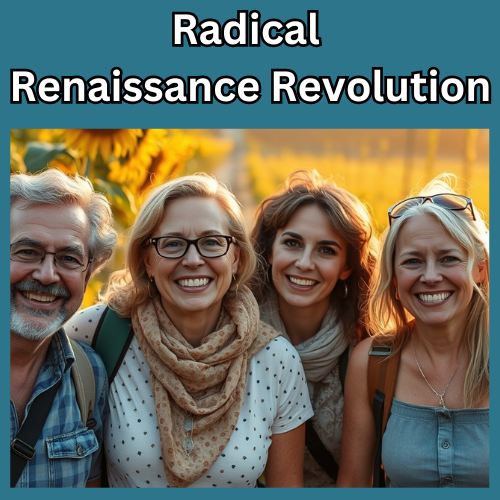
Ready to start again, stronger than ever before? This quiz will help you find out. It is not just about measuring where you are right now; it’s about shining a light on the areas of your life that feel meaningful, as well as those that might need attention. It’s an opportunity to reflect, recalibrate, and take steps toward a life that’s not only successful but profoundly fulfilling. Take The Quiz
If you’re feeling overwhelmed, exhausted, or on the edge of burnout, you need immediate support. The Road Map to Resilience: Burnout to Brilliance online course (with the option of adding coaching sessions) is designed for exactly that: a practical, step-by-step course to help you regain control, rebuild your energy, and find clarity in the chaos. This isn’t a quick fix—it’s about proven strategies to calm your nervous system, shift your mindset, and create sustainable resilience. No need to cope with this on your own—let’s get you back on track.

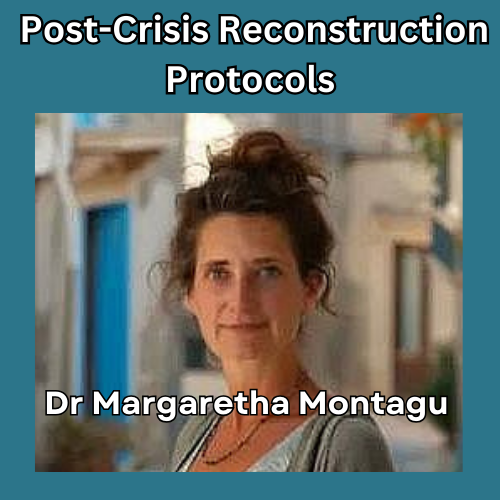
“I am an experienced medical doctor – MBChB, MRCGP, NLP master pract cert, Transformational Life Coach (dip.) Life Story Coach (cert.) Counselling (cert.) Med Hypnotherapy (dip.) and EAGALA (cert.) I may have an impressive number of letters after my name, and more than three decades of professional experience, but what qualifies me to excel at what I do is my intuitive understanding of my clients’ difficulties and my extensive personal experience of managing major life changes using strategies I developed over many years” Dr M Montagu
On the Blog:
- Camino Chronicles Day 4
 The Body Revolution In the moment between Armand’s collapse and the arrival of the ambulance, Sophie discovered that resilience isn’t about being strong – it’s about being present when strength fails. A Masterclass in Radical Resilience Yesterday, our intrepid pilgrims wrestled with the emotional turbulence, a relatively cerebral affair. Today, however, begins with a rather …
The Body Revolution In the moment between Armand’s collapse and the arrival of the ambulance, Sophie discovered that resilience isn’t about being strong – it’s about being present when strength fails. A Masterclass in Radical Resilience Yesterday, our intrepid pilgrims wrestled with the emotional turbulence, a relatively cerebral affair. Today, however, begins with a rather … - The Camino Chronicles: Day 3
 The Pivot Point Sometimes the most courageous thing you can do is admit that your dreams need updating – and Sophie’s phone call proved that courage comes in unexpected forms. Day 3: Wisdom lies not in stubborn adherence to old Dreams What happens when you discover that your current purpose needs a complete overhaul? Today, …
The Pivot Point Sometimes the most courageous thing you can do is admit that your dreams need updating – and Sophie’s phone call proved that courage comes in unexpected forms. Day 3: Wisdom lies not in stubborn adherence to old Dreams What happens when you discover that your current purpose needs a complete overhaul? Today, … - The Camino Chronicles: Day 2
 The Compass That Points Inward Armand had carried the compass for forty years, but until today, he’d never realised it had been pointing the wrong direction all along. A Compass becomes a Catalyst Yesterday, we met two souls beginning a journey that would challenge everything they believed about life after 50. Today, as they walk …
The Compass That Points Inward Armand had carried the compass for forty years, but until today, he’d never realised it had been pointing the wrong direction all along. A Compass becomes a Catalyst Yesterday, we met two souls beginning a journey that would challenge everything they believed about life after 50. Today, as they walk … - A Stage Four Diagnosis
 He was unprepared to die because he’d never really figured out how to live. Q: “I’ve just been told that I have a life-threatening disease. I’ve heard that knowing your life purpose can help during difficult times. Well, this is a VERY difficult time. Can someone explain how knowing my life purpose might help me …
He was unprepared to die because he’d never really figured out how to live. Q: “I’ve just been told that I have a life-threatening disease. I’ve heard that knowing your life purpose can help during difficult times. Well, this is a VERY difficult time. Can someone explain how knowing my life purpose might help me … - The Camino Chronicles: A 7-Day Storytelling Series
 Two Souls, One Path: Sophie and Armand’s Life-changing Adventure in the Southwest of France More and more, I find myself using storytelling as a medium to pass on insights, probably not altogether surprising as my first love, even after 8 books, remains writing. Today I embark on a 7-part story, the Camino Chronicles, that I …
Two Souls, One Path: Sophie and Armand’s Life-changing Adventure in the Southwest of France More and more, I find myself using storytelling as a medium to pass on insights, probably not altogether surprising as my first love, even after 8 books, remains writing. Today I embark on a 7-part story, the Camino Chronicles, that I …Continue reading “The Camino Chronicles: A 7-Day Storytelling Series”

